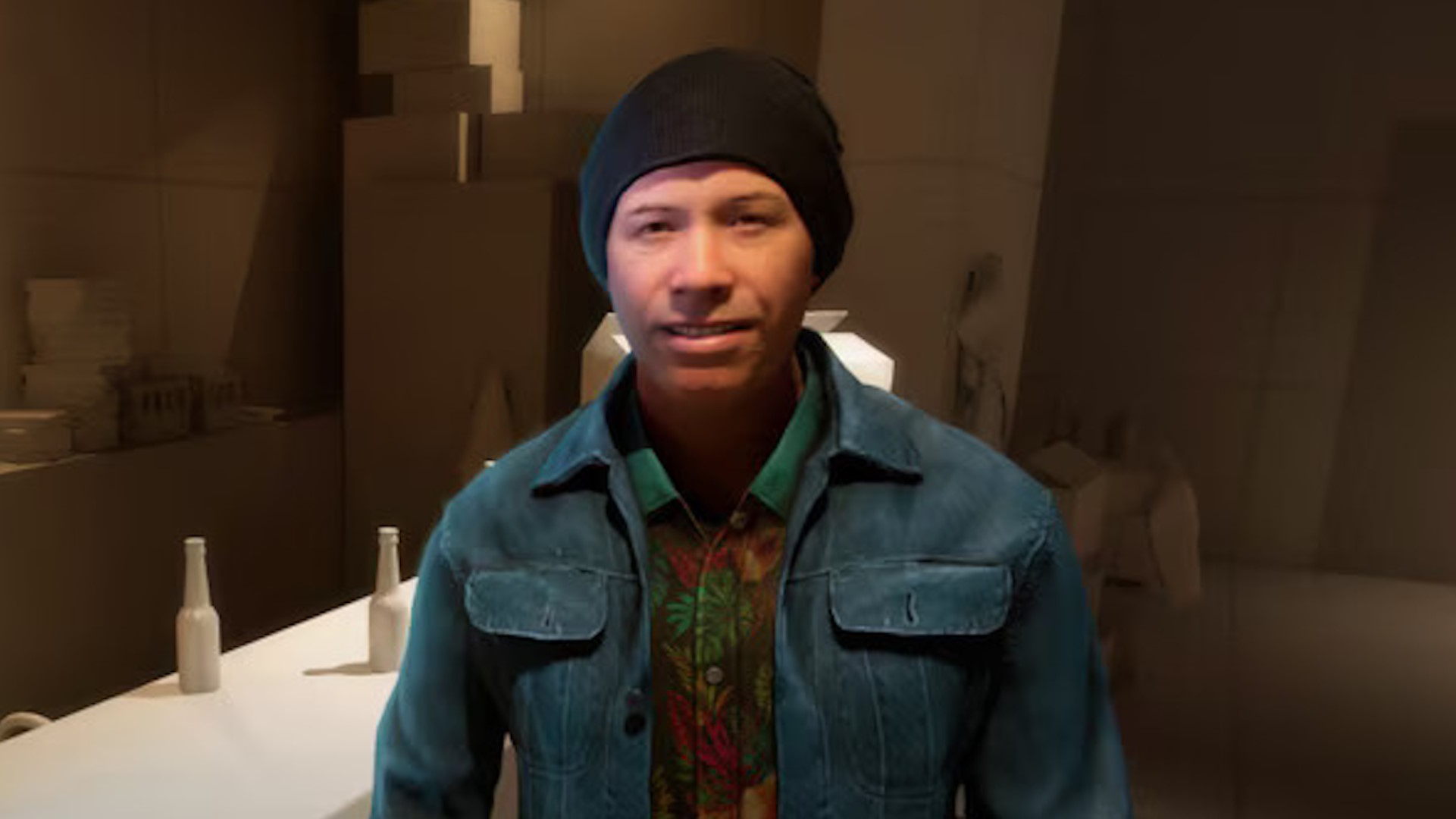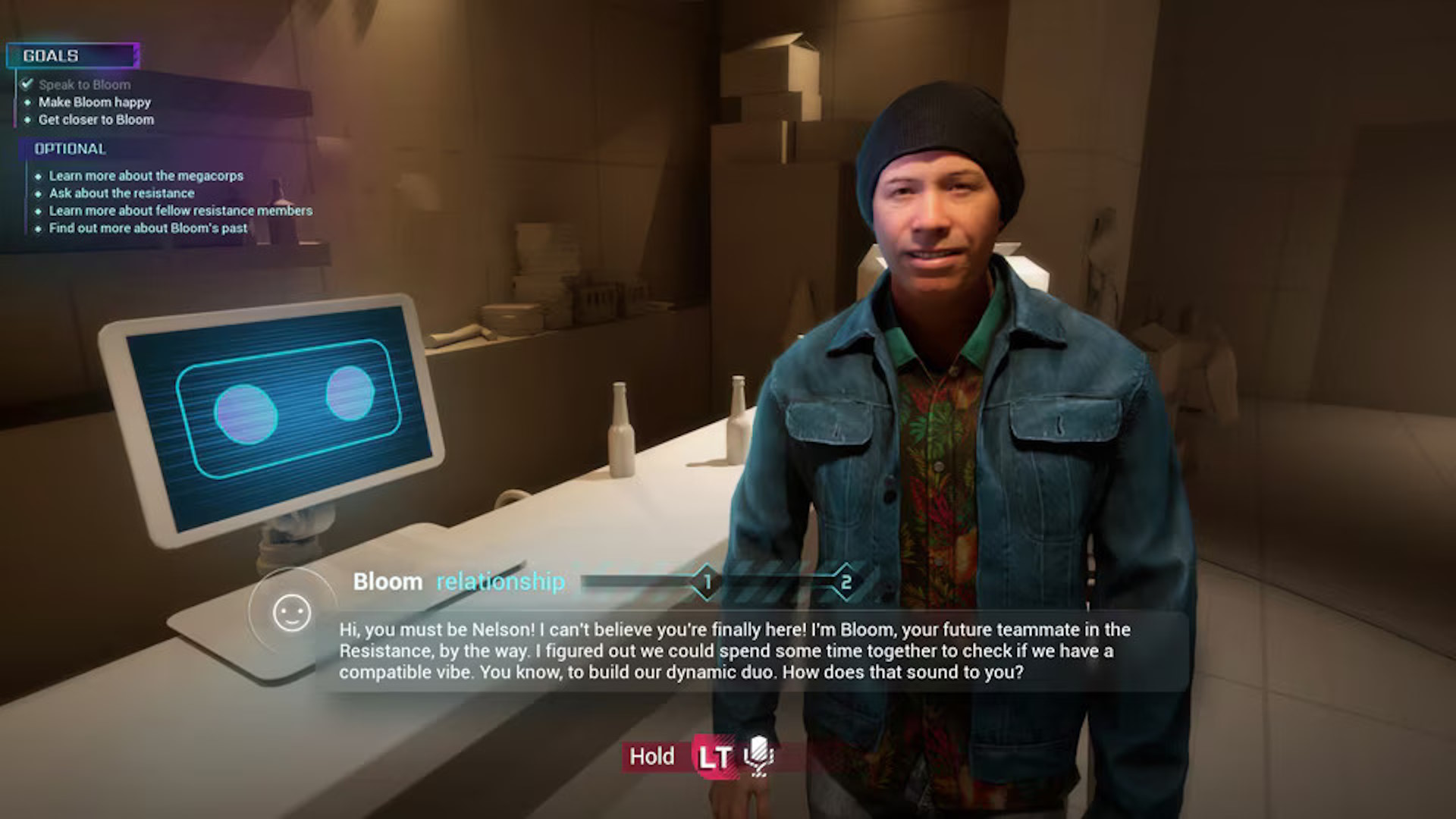Ubisoft shows off AI-powered 'Neo NPCs' at GDC: 'It could be the start of a fantastic paradigm shift,' but let's be honest, it probably won't
Ubisoft has big dreams for AI.

Ubisoft unveiled a new project called Neo NPCs today at GDC, offering an early look at its "first player-facing generative AI (GenAI) prototype that could transform the way players interact with non-playable characters (NPCs) in videogames."
To be clear, these Neo NPCs aren't yet ready to step into the spotlight. The GDC showcase was merely meant to show off their "potential ... to create deep connections with the player and to offer new gameplay strategies and emergent storytelling opportunities."
Even at this very early stage, the whole thing sounds like an overexcited sales pitch to me—when it's not borderline incomprehensible. Consider this bit from the announcement, about the AI-powered NPCs that appeared during the GDC showcase:
For Ubisoft’s teams in charge of bringing these NPCs to life, using GenAI tools helps elevate and expand the level of the creative work needed for the demonstration's narrative design far beyond what is usually required for traditionally scripted NPC interactions. Every detail—personalities, backstories, agendas, and emotions—needs to be thoroughly crafted and programmed into the NEO NPC model. Each conversation between the player and an NPC then becomes unique and responsive to the players and their actions, leading to fully personalized and immersive experiences.
My immediate question was, "Did AI write this?" That's one hell of a word salad, and while the ultimate point—that a whole lot of work went into this project—can be pulled out of it with effort, I can't help but feel that Ubisoft is overselling an experimental technology before it's proven anything.
Back to the press release: Ubisoft says these AI-powered NPCs have the ability to do all the things conventional NPCs do—give quests, provide training, come along as companions—but do so dynamically, with "a comprehensive understanding of their environment."
"The game world actually listens to and dynamically responds to the players," project director and producer Xavier Manzanares said. "Social interactions and skills become part of the gameplay. Smarter NPCs like our Neo NPCs have the potential to become a breakthrough addition to the traditional NPCs we see in games today. They provide the ability to create even more immersive worlds and emergent stories.”
Keep up to date with the most important stories and the best deals, as picked by the PC Gamer team.
Well, okay. I'm certainly not averse to technological advancement, but I can't stop thinking about Baldur's Gate 3, a game that delivers a full cast of rich, memorable NPC companions without all this overblown tech-trend chasing. Ultimately all of this is meant to serve the story and the player, and if some games can accomplish that the old-fashioned way—good writing, clever design, immersive performances—then I have to wonder what this dive into AI is really going to give us. Is the machine really going to produce the next Karlach?
One more from the press blast:
Enhanced with new neural functions—such as unscripted dialogue, real-time emotion and animation, memory, contextual awareness, and collaborative decision-making—NEO NPCs display unprecedented cognitive and interactive abilities.
Look, I get that this is prototype tech, but that's a lot to take in, particularly from a publisher whose latest big idea was dropping Skull and Bones for 70 bucks and seemed genuinely surprised that VR games aren't big sellers.

In a separate blog post, Ubisoft took pains to emphasize that Neo NPC "personalities" will be created by a writer, not a machine. Narrative director Virginie Mosser said she's "used to building a character’s backstory, their hopes and dreams, the experiences that shaped their personality" when writing dialogue, but now that information is instead used to "nurture a model."
“It’s very different,” Mosser said. “But for the first time in my life, I can have a conversation with a character I’ve created. I’ve dreamed of that since I was a kid.”
Ubisoft also said in the post that it has filters in place "to catch toxicity and inappropriate inputs on the part of the player"—essentially, if you're a dick, the NPC will stop interacting with you—and also has "a keen sensitivity toward bias and stereotypes," which leads to an interesting story from data scientist Mélanie Lopez Malet: "We created a physically attractive female character, and its answers veered towards flirtatious and seductive, so we had to reprogram it."
Honestly, the whole thing takes me back to Ubisoft's on-again, off-again dalliance with NFTs, which it jumped into with both feet before realizing it was all hot nonsense, at which point it said it was really just "research" and that "when we have something that gives you a real benefit, we'll bring it to you." Maybe this really is the first step toward the next generation of videogame AI, but perhaps a similar approach would be called for here, too: Make the big claims only after you've proven the thing actually works.

Andy has been gaming on PCs from the very beginning, starting as a youngster with text adventures and primitive action games on a cassette-based TRS80. From there he graduated to the glory days of Sierra Online adventures and Microprose sims, ran a local BBS, learned how to build PCs, and developed a longstanding love of RPGs, immersive sims, and shooters. He began writing videogame news in 2007 for The Escapist and somehow managed to avoid getting fired until 2014, when he joined the storied ranks of PC Gamer. He covers all aspects of the industry, from new game announcements and patch notes to legal disputes, Twitch beefs, esports, and Henry Cavill. Lots of Henry Cavill.

